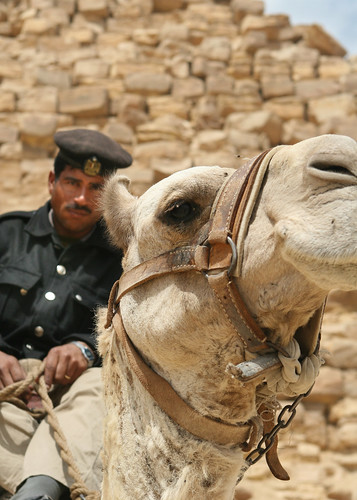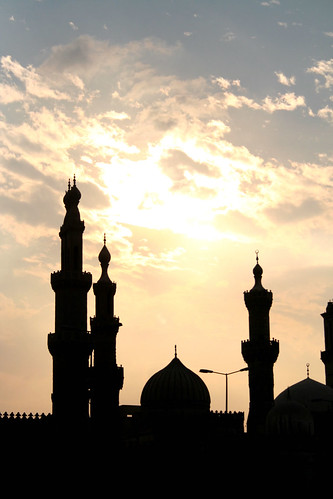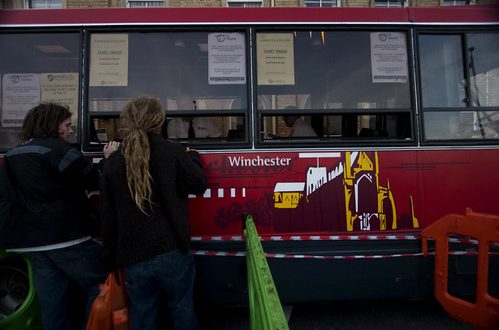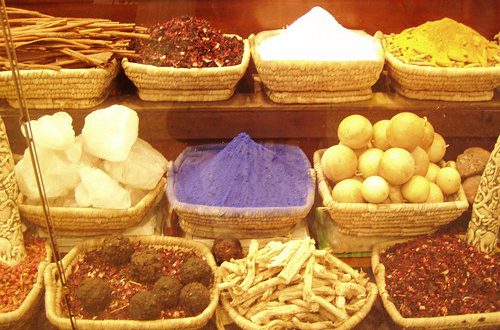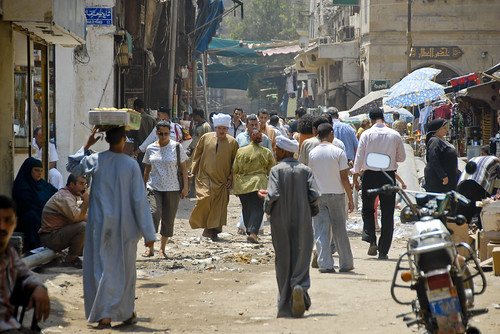 The man with the toothless smile and sharp eyes beckons you over to see his papyrus, meanwhile another calls you to his perfume shop. Sales pitches vary: Special price for pretty lady or if youre male, You want something for your wife, not your wife? OK, for your mistress then?
The man with the toothless smile and sharp eyes beckons you over to see his papyrus, meanwhile another calls you to his perfume shop. Sales pitches vary: Special price for pretty lady or if youre male, You want something for your wife, not your wife? OK, for your mistress then?
Apart from the hassle of the hustlers and the danger of having an over-priced piece of papyrus on your wall when you get home, what other risks do you face in Cairo? Is it safe to travel there at all?
Cairo does have a certain charm, but a first visit can be daunting. As a result of the massacre at Hatshepsuts temple, and in the aftermath of the 7/11 attacks, there is heightened security. If youre not used to seeing armed soldiers or police on the street, this in itself can be unsettling and this is before you start thinking about why they are present. Being a predominantly Islamic country, tourists are a potential target. But tourism is Egypts main source of income. After the 1997 massacre, the whole country was shut down for three months, and with over a million visitors from Britain alone entering the country each year, Egypt is keen to protect its assets.
Relatively Safe
Compared to other cities such as Addis Ababa in Ethiopia and Karachi in Pakistan, both of which have high terrorist warnings, Cairo is positively safe. It hasnt got the dangers associated South American cities, plus there isnt a war on in Egypt. In my opinion, it would be unwise to start venturing into countries such as Afghanistan and Iraq at the moment.
At time of writing the British Foreign and Commonwealth Office states there are no travel restrictions within Egypt and according to the British Foreign and Commonwealth Office, most visits are trouble-free. Out of the one million British national visitors, 558 required consular assistance in the period 01 April 2009 31 March 2010. There were a variety of incidents and offences including hospitalisations and a small number of rape/sexual assault incidents but by far the most common request was for help with lost or stolen passports. The website states that the majority of consular cases occur in Cairo and the Red Sea resort, Sharm el-Sheikh.
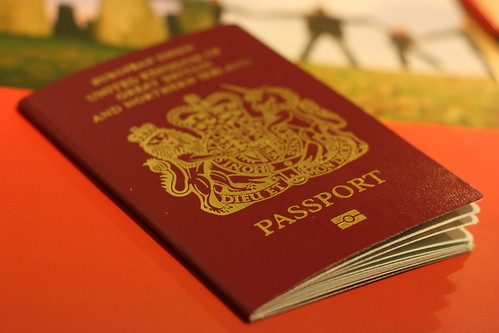 Passports are worth a lot of money on the black market, and tourists are obviously targets. Residents and visitors alike are meant to carry photographic ID on them in Egypt, so carry a photocopy of your passport and leave the real thing in the hotel safe. Cairo is not alone with its problems with pickpockets. I have been pick pocketed in London and whilst in Rome a friend had toilet paper that resembled a wallet in their jeans back pocket removed.
Passports are worth a lot of money on the black market, and tourists are obviously targets. Residents and visitors alike are meant to carry photographic ID on them in Egypt, so carry a photocopy of your passport and leave the real thing in the hotel safe. Cairo is not alone with its problems with pickpockets. I have been pick pocketed in London and whilst in Rome a friend had toilet paper that resembled a wallet in their jeans back pocket removed.
There are general rules which any traveller should follow to avoid opportune crime such as pick pockets: dont wear anything which makes you look affluent, keep jewellery to a minimum, avoid obvious designer branded clothing and luggage, dont carry a lot of money and wear a money belt.
To avoid harassment, women in particular should dress modestly. This applies not just in Cairo but all over Egypt, although the Egyptians are more accepting of western dress in the resorts by the sea.
Safety Advice
It is always good to get off the beaten track and discover the real Cairo, but chose your area carefully. There are certain areas of western capital cities I would be very uncomfortable visiting, and some of the poorer areas of Cairo are no different.
Taxi drivers, shop assistants and even someone on the street may approach you and offer to show you the city. Be wary. The chances are youll be charged an extortionate amount for this guide and be dragged into numerous papyrus/jewellery/perfume/alabaster shops to help you part with your hard earned money; at worst, I have heard youll be threatened and be forced to hand over your wallet or taken to the nearest cash point and told to withdraw money, although these instances are rare.
Taking photographs is obligatory in Cairo, but the man on the camel at the pyramids will probably ask you for some money. Remember too, photography of or near military official installations is strictly prohibited and dont photograph officials, or anyone else for that matter, without their consent.
With over six million people living in Cairo, and a further 10 million living on the outskirts, it is hardly surprising traffic is another danger, and not because of the pollution. You take your life into your own hands with some taxi drivers, who in their aim to please appear to take enormous risks in the traffic chaos. One taxi driver once told me Egyptian roads do have markings, but theyre for decoration.
Crossing the road can be a feat in itself, and people appear to be oblivious to the moving traffic. I would usually wait and cross the road in a crowd, working on the principle of the more people crossing, the less chance I would have of being hit!
Relax – Enjoy it!
Much of the above advice can be attributed to most cities around the world. I would give similar advice to people visiting for example Istanbul, Prague, and Athens. As a tourist, you are vulnerable simply because you dont know the area and your attention is focused on seeing the sites, not who is standing next to you.
Cairo is an electric mix of ancient and modern, and east and west; street sellers will entice you with nuts and falafels or you can have exquisite dining in one of the many fine restaurants. Designer shops are in the affluent areas, but try your bartering skills in the Khan El-Khalili markets. Plus there is the mystical call to prayer will wake you at dawn – Cairo is affectionately known as the City of 1000 Minarets by some.
Ancient Cairo and its sites have withstood millennia, and a trip to see the pyramids is a must. But also make sure you find some time to sit in a tea shop and watch the men smoking shisha pipes, smell the exotic spices in the market, take a boat trip on the Nile and generally immerse yourself in Cairos modern culture.

